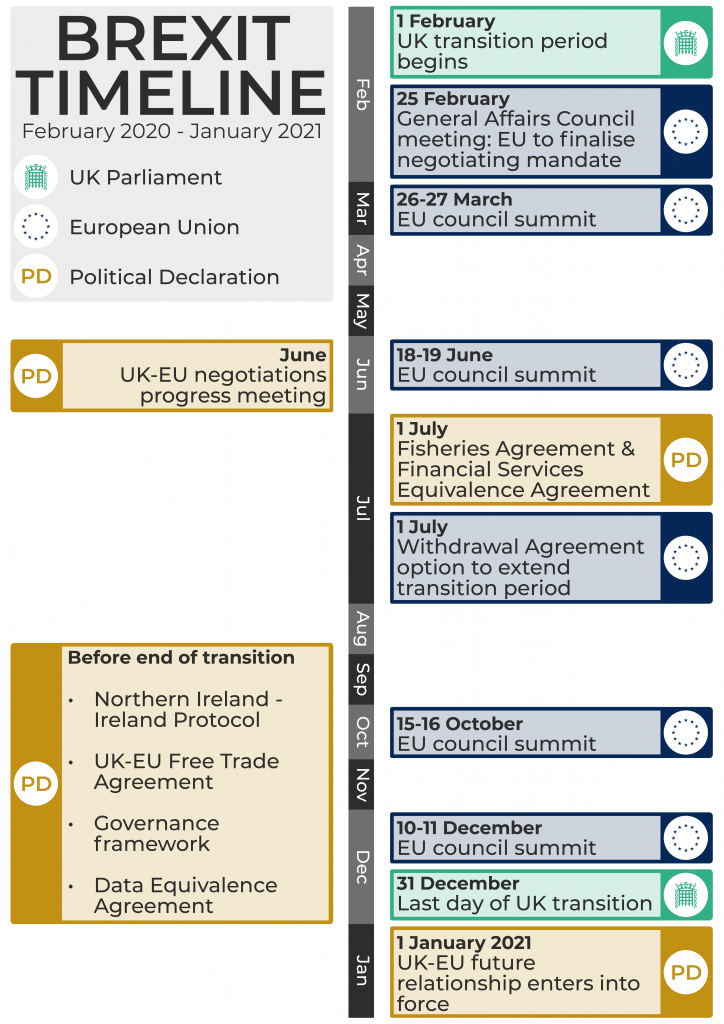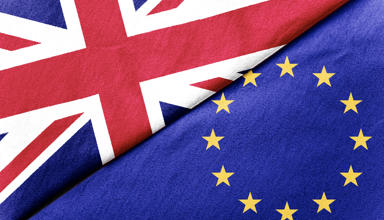Negotiations between the UK and the EU on their future relationship are about to begin.
On 3 February, the EU’s chief negotiator set out the EU’s priorities in draft negotiation directives, which will be adopted by the European Council at the end of February. The Prime Minister set out the UK Government’s preferred basis for the relationship in a written statement and speech on the same day.
But which elements of a future relationship matter most to public services, business and civil society organisations in Wales?
The Assembly’s External Affairs and Additional Legislation Committee (@SeneddEAAL) has been considering this issue since its establishment in 2016. Its main priorities are set out below.
Wales’ priorities for a future relationship
Access to the market
Market access was one of the key priorities identified by the External Affairs Committee in its report on Wales Future Relationship with the EU, (PDF 9MB). The Committee found that Welsh businesses and organisations identified preferential access free from both tariff and non-tariff barriers as the most important negotiation priority. The Committee heard from organisations such as the Association of the British Pharmaceutical Industry (ABPI), Aston Martin, Toyota, the Welsh NHS Confederation and the Institute of Civil Engineers that the UK should seek to maintain common regulatory standards with the EU. The Committee concluded that:
…. the evidence overwhelmingly prioritises the maintenance of equivalent regulatory standards to ensure preferential market access over regulatory divergence after Brexit.
Safeguarding key sectors
The Committee called on the negotiations, and the Welsh Government in its conversations with the UK Government, to safeguard key industries in Wales that could be particularly vulnerable to trade barriers. These were the farming, food and the fishing industries.
Cooperation with EU agencies
Continued cooperation with EU agencies after Brexit was identified as priority for many stakeholders, particularly in the health sector. Organisations such as the Welsh NHS Confederation, the Royal College of Nurses and the British Medical Association (BMA) Cymru called for the UK to prioritise continued cooperation with the European Centre for Disease Prevention and Control and the European Medicines Agency.
Other agencies identified as being important to Wales were the European Food Standards Agency and the European Aviation Safety Authority.
Continued participation in EU Programmes
The UK and EU adopted a Political Declaration that set out a ‘roadmap’ for the negotiations in October 2019. The Declaration listed a number of areas where both parties would aim to continue cooperation in future.
We published a series of infographics highlighting these in our blog on the future relationship on 3 February 2020.
Welsh stakeholders prioritised participation in research and innovation, education and medical research programmes such as Horizon 2020 and Erasmus+ in their responses to the External Affairs Committee.
What’s the Welsh Government’s position?
The Welsh Government set out its views on the Brexit negotiations in a series of documents. Most recently it published the Future UK/EU Relationship: Negotiation Priorities for Wales.
It concludes that:
- trade with the EU market should be prioritised over trade with other markets. It also said that the negotiations should aim for the fullest possible access to the EU market without tariff and non-tariff barriers;
- to secure this, the UK should aim to agree broad ‘level playing field’ commitments with the EU, to ensure fair competition and alignment on standards;
- the UK should seek to cooperate and participate in key EU agencies and EU programmes;
- the UK should pursue the fullest possible security partnership with the EU. This should include a data adequacy assessment as soon as possible to allow the flow of data to continue.
What happens next?
The opening positions have been set out by both sides and negotiations are due to begin in earnest towards the end of this month. Our Brexit timeline sets out the key dates for the next 11 months.

The UK Government has been discussing with the devolved Governments what role they will have in the future negotiations. Details of how they will be involved have yet to be published, but are expected in the coming weeks.
Article by Nia Moss, Senedd Research, National Assembly for Wales






